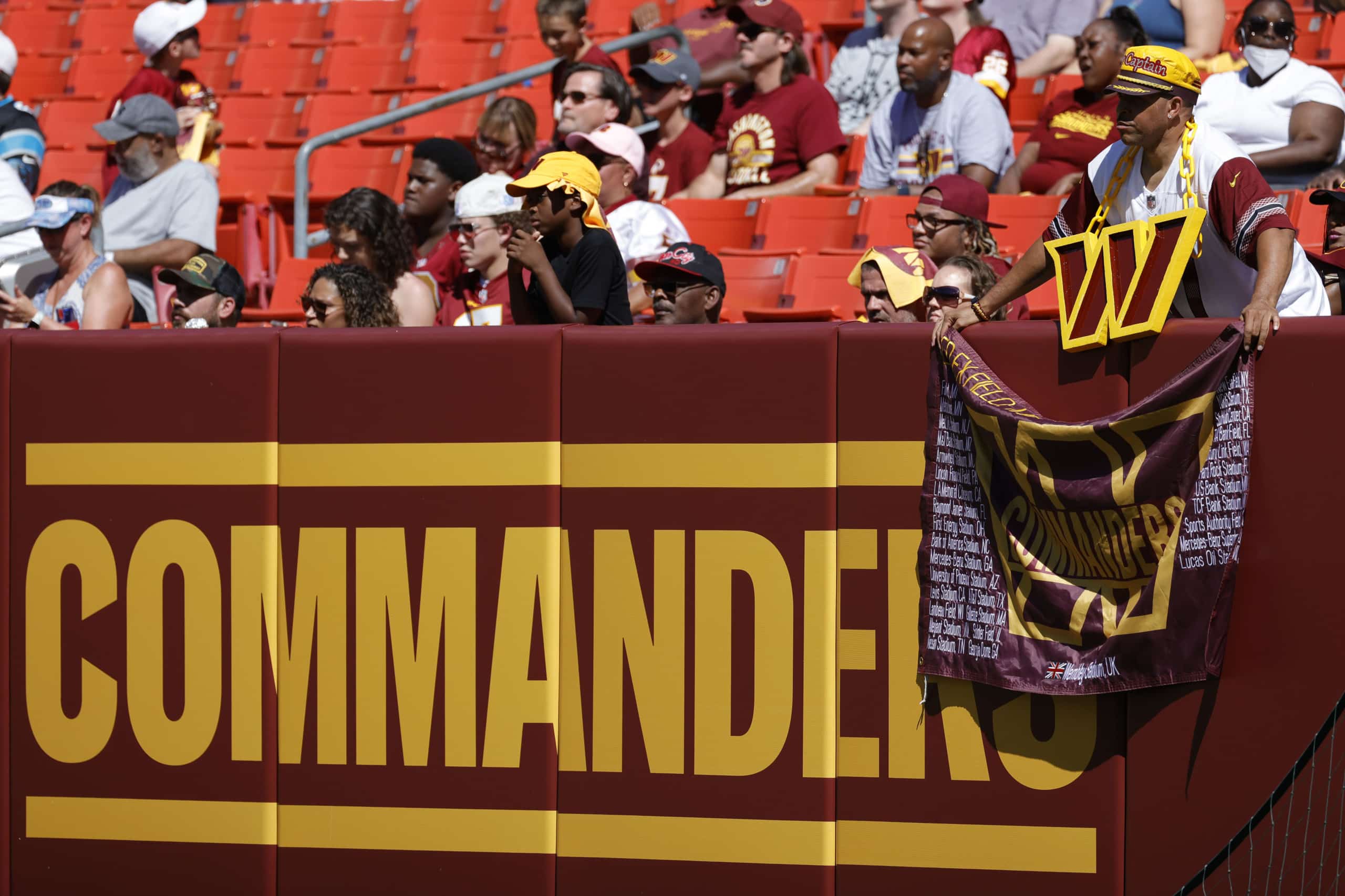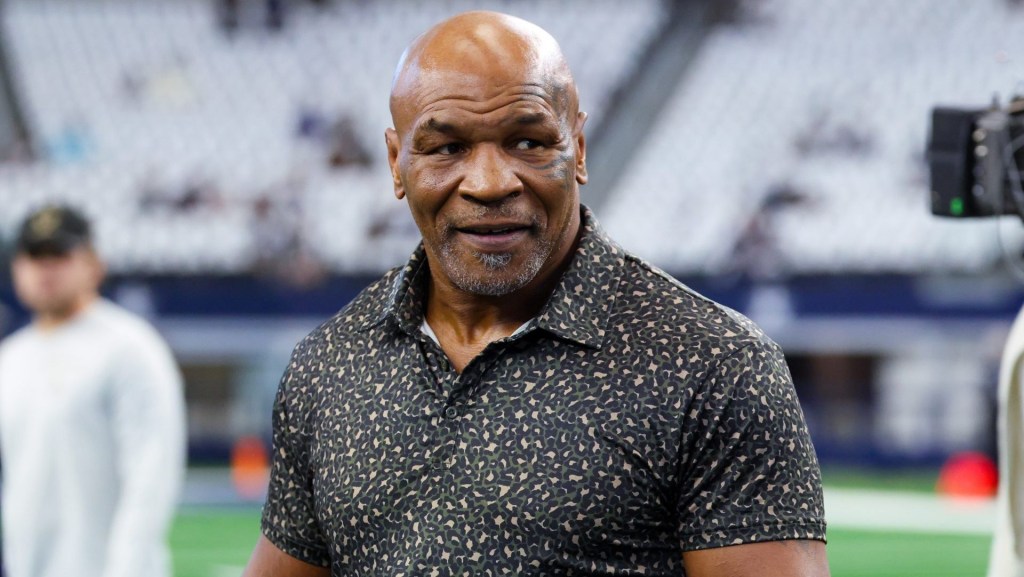The federal judge seems suspicious of Brian Davis’ lawsuit against Bank of America over the former Duke basketball player’s attempt to purchase the Washington Commanders.
And Judge Deborah L. Boardman isn’t the only one to cast doubt on Davis’ legal claims that began with Friday’s lawsuit that now seeks $999,000 in damages — a 99% reduction from the $500 billion figure that was originally listed in the federal docket system.
Boardman wrote an order on Wednesday that Davis’ court filings were unable to “clearly show that immediate and irreparable” harm, and she won’t rule on whether a hearing on an injunction is warranted until Bank of America responds to the lawsuit.
“Urban Echo appears to argue that, unless the bank drafts it delivered to BOA are credited or returned immediately, it will miss the opportunity to have its offer to purchase the Commanders evaluated by the team’s owners,” Boardman wrote. “But Urban Echo acknowledges that the Commanders’ owners already have accepted a bid for the purchase of the team, and that ‘another party has entered into a contract to purchase the Commanders.’”
A group led by Josh Harris finalized a $6.05 billion deal to purchase the Commanders on May 12. The sale is expected to be approved by NFL owners later this summer at a special meeting, officially ending Dan Snyder’s 24-year run as owner.
“The proverbial ship has sailed for Mr. Davis,” said sports law attorney Daniel Wallach, co-host of the Conduct Detrimental podcast. “Further, the NFL — as a private association — and Snyder (as a private business person) are under no obligation to consider a particular bid or to even accept the highest or the best offer.”
It’s expected that Bank of America will file a motion to dismiss the case in the coming days, and Front Office Sports talked to legal and financial experts that called both the lawsuit and the source of funds at the center of Davis’ legal claims filed in Maryland federal court.
Bank of America is a Delaware corporation, and the Commanders sale is handled at its North Carolina corporate base.
“Given the absence of any bona fide connection to Maryland, I would expect Bank of America to file a motion to dismiss Urban Echo’s lawsuit on multiple procedural grounds,” Wallach said.
Bank of America declined to comment.
Davis alleged in the lawsuit that his company, Urban Echo, transferred a total of $5.1 billion to Bank of America on March 8.
But there were immediate questions about how Davis got access to billions of dollars, and the demand guarantee letter for the bank transfers obtained by FOS shed little light on where the funds were coming from.
FOS called the first phone number listed in the document, and the outgoing message was for the Superior Seafood Company based in Los Angeles.
Another number listed that also had a 213 area code for “Wells Fargo SGSR Statutory Trust DST” on the forms was answered by somebody who apparently worked for the firm.
“Why is a sports reporter asking these questions?” that person asked FOS on Tuesday.
That person, who did not give his name, said he’d call back with details that explain the questions about the document. There has so far been no response from the firm.
But there are two major issues with the bank drafts:
- Urban Echo Energy isn’t licensed to operate in California, meaning Bank of America would have every right to reject the transfers since they were funneled through the state.
- While the transfer documents do list Davis, they do not list the purpose for the transfer, which would lead to questions. The Commanders and owner Dan Snyder are not mentioned in the docs.
Moreover, Davis was never actually an active part of the bidding process, sources told FOS.
While others like Houston Rockets owner Tilman Fertitta and Canadian businessman Steve Apostolopoulos were involved, when Davis tried to enter, Bank of America had already honed in on Harris.
To this day, it’s not clear where Davis’ money originated.
Davis claimed in the lawsuit that he sought to bid $7 billion for the Commanders — nearly a billion more than Harris.
Davis said in interviews that he had access to up to $100 billion in funding.
“My money comes from white people who are Jewish, Italian, and Sicilian,” said in an interview on 106.7 The Fan in April.
Two sources told FOS that funds may have originated from Saudi Arabia, although Davis disputed that in an interview with WUSA-9 in April.
“The money is not Saudi Arabian, and I’ve never been to Saudi Arabia,” Davis said.
The lawsuit is unlikely to hinder the sale of the Commanders, although Harris could have to sign a letter with Bank of America to promise to cover a judgment or settlement from the lawsuit — even if such an outcome, as of now, appears unlikely.
On Thursday, Boardman set a Friday call-in status conference in the case.


![[Subscription Customers Only] Jun 15, 2025; Seattle, Washington, USA; Botafogo owner John Textor inside the stadium before the match during a group stage match of the 2025 FIFA Club World Cup at Lumen Field.](https://frontofficesports.com/wp-content/uploads/2026/02/USATSI_26465842_168416386_lowres-scaled.jpg?quality=100&w=1024)
![[Subscription Customers Only] Jul 13, 2025; East Rutherford, New Jersey, USA; Chelsea FC midfielder Cole Palmer (10) celebrates winning the final of the 2025 FIFA Club World Cup at MetLife Stadium](https://frontofficesports.com/wp-content/uploads/2026/02/USATSI_26636703-scaled-e1770932227605.jpg?quality=100&w=1024)













